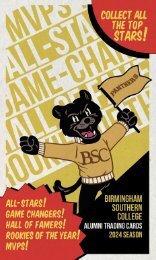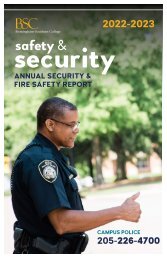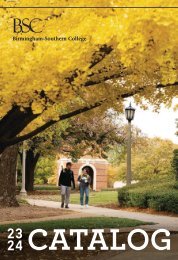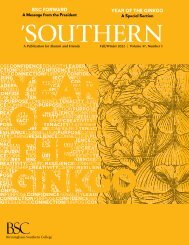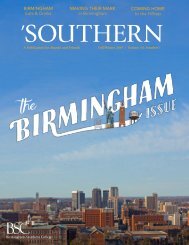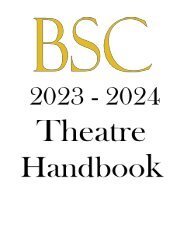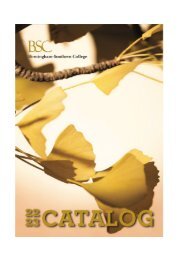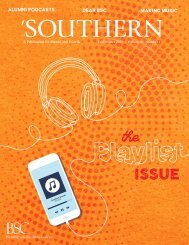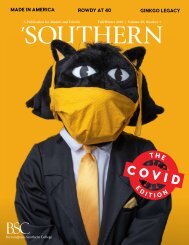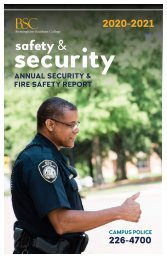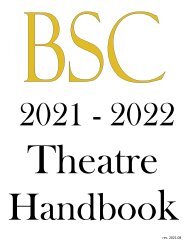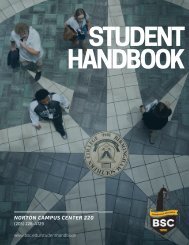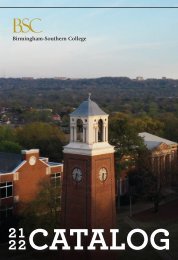2023-2024 BSC Catalog Updated_UG ONLY_FINAL[82]
Create successful ePaper yourself
Turn your PDF publications into a flip-book with our unique Google optimized e-Paper software.
ACADEMIC PROGRAMS<br />
39<br />
(3) Civic Engagement. Fully engaged citizens articulate their place in the world by<br />
attending to historical, social, economic, and geographical differences; such citizens are<br />
equally capable of attending to competing interests by weighing the costs of privileging<br />
one perspective over another. To assist students in refining this attention, we invite them<br />
to participate in three courses or experiences among the following, with no more than<br />
two of the three coming from any one option:<br />
courses in a foreign language<br />
courses whose primary concerns are the understanding of subject matter within a<br />
global perspective, be that a cultural, political, social, economic, historical,<br />
linguistic, or aesthetic framework (GP)<br />
courses whose primary interests are in competing ethical, moral, or community<br />
interests (CI)<br />
a study abroad experience for at least one fall or one spring term (no more than one<br />
may be counted toward the three) in a program approved by the Krulak Institute<br />
GP – Global Perspectives. Students will be able to<br />
• examine an element of global complexity in relation to aesthetic, cultural,<br />
geographic, historical, political, economic, societal, religious, or philosophical<br />
perspectives appropriate to the discipline<br />
• identify cultural differences among peoples within a world community<br />
• demonstrate how world views are shaped by fundamental differences in cultural<br />
values<br />
CI – Community Interests. Students will be able to<br />
• examine how community is shaped by multiple contexts<br />
• assess competing interests in community decision making<br />
• analyze a societal problem from multiple angles or methodologies<br />
(4) Connectivity. Creative insight and generative problem solving frequently occur by<br />
connecting previously disconnected areas of thought. In this vein, we expect students to<br />
be able to identify and employ connections within one academic area, among academic<br />
areas, and between the academy and the wider world. Two courses, one at the beginning<br />
and one at the conclusion of the Explorations curriculum, and an experiential (EL)<br />
experience assist in developing this ability:<br />
one designated first-year explorations in scholarship seminar (ES)<br />
one connection in scholarship senior experience, which serves as the capstone within<br />
the major and includes a required public presentation<br />
one experiential learning (EL) experience completed any time<br />
ES – Explorations in Scholarship First-Year Seminar. Students will be able to<br />
• contribute to ongoing class discussions<br />
• make effective oral presentations<br />
• identify strengths and weaknesses of different points of view and approaches to<br />
problems<br />
• position oneself in an ongoing conversation/argument<br />
• engage in library and/or other research appropriate to the content of the seminar<br />
Birmingham-Southern College <strong>Catalog</strong> <strong>2023</strong>-<strong>2024</strong>


![2023-2024 BSC Catalog Updated_UG ONLY_FINAL[82]](https://img.yumpu.com/68414854/39/500x640/2023-2024-bsc-catalog-updated-ug-only-final82.jpg)
